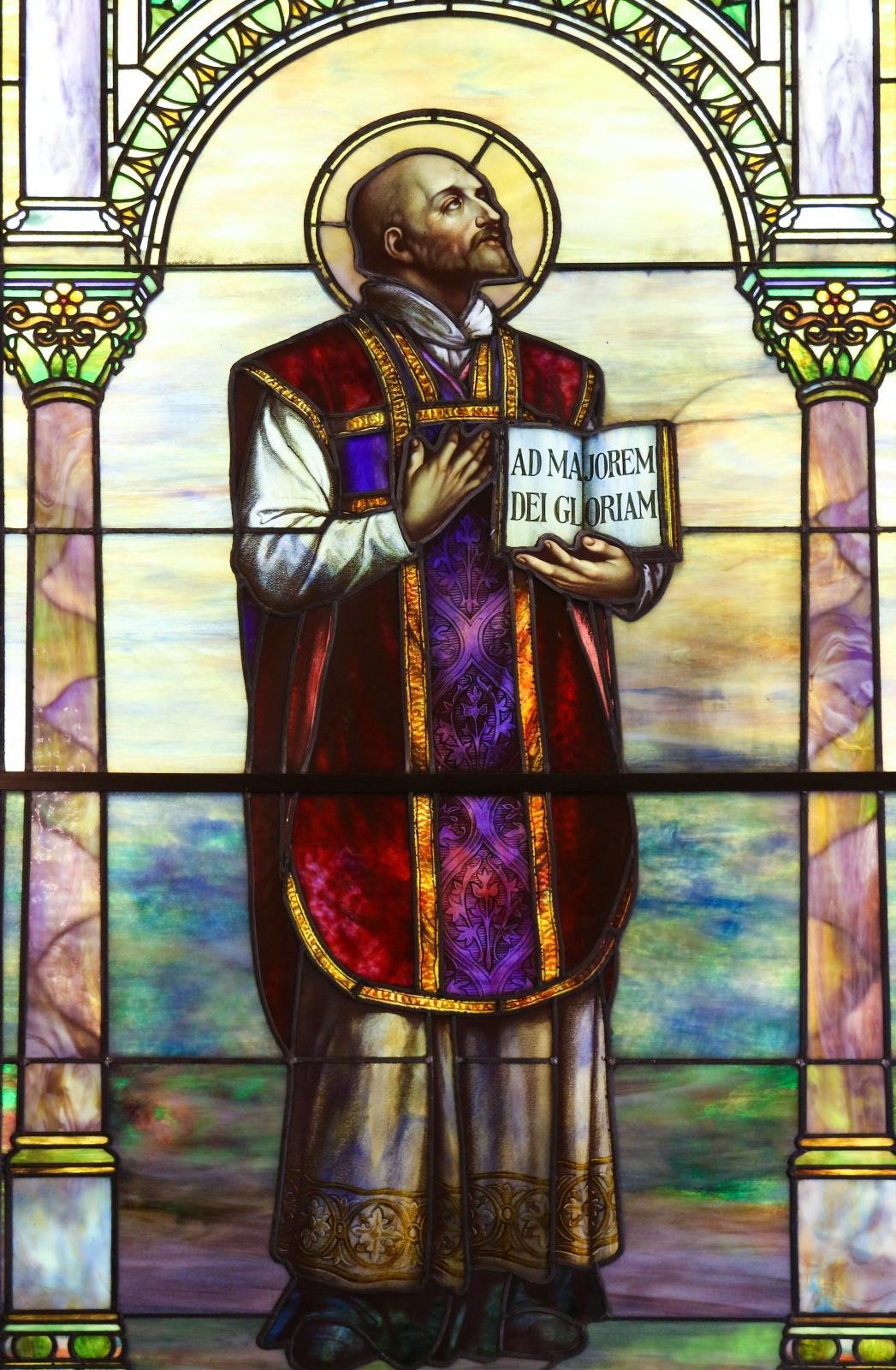By Father Dominic Robinson
Who was St Ignatius of Loyola? Where do we start? He was very much a man of his time and place, of sixteenth century Europe and the upheaval of the Reformation, a Spanish soldier and romantic dramatically converted to a life of faith in action, a mystic who gave us the Spiritual Exercises as a handbook for a living spirituality focussed on finding God in all things, and a leader who founded the Society of Jesus which was to become a large religious order around the world.
In Ignatius’ own autobiography, however, he calls himself simply ‘the pilgrim’ whose long trek across Spain from his birthplace in Loyola to Manresa, where he composed the Exercises, defined him and his legacy. It was following a long sojourn in hospital recovering from serious injury in battle that he set out on a pilgrimage which mirrored a pilgrimage of the heart. Here Ignatius learns the need to pray for detachment, for interior freedom and ultimately to Indifference to what life brings me. Finally, before the statue of the Black Madonna at the shrine of Montserrat, an ancient place of pilgrimage where a monastic settlement had flourished for centuries, the pilgrim spent three nights in prayer. Here he laid down his sword, renounced his former ways with all its vanities and dedicated himself to his new master, that is Christ. He walked on another twenty miles to Manresa where he spent a year living in a cave where he wrote the Spiritual Exercises, guiding retreatants through a spiritual journey through which we examine our own motivations and sinfulness, our closeness to the Christ of the scriptures, our solidarity with the cross and our living in the resurrection. The best way to learn about the Exercises is to do them, usually with a guide. There are many opportunities to do this, including here in London at the London Jesuit Centre.
So, what about the order he founded, the Jesuits? Reflecting on the life of the pilgrim Ignatius we are reminded that it started small, built on the companions’ zeal to help people uncover Christ’s presence in the midst of everyday life. When studying for the priesthood in Paris Ignatius gathered around him a small band of six companions who on 15th August 1534 all took vows of poverty and chastity and, further, promised that upon completion of their studies, they would make a pilgrimage to the Holy Land, and agreed to meet in Venice to embark from there. The agreed meeting took place, but the companions waited in vain for a pilgrim ship to the Holy Land. But what happened during the wait was more significant than any pilgrimage could have been. It was during this time that Ignatius and those of the companions who were not yet priests were ordained on 24th June 1537. In July 1537 the companions left Venice for nearby Vicenza, still awaiting their passage. Here they began ministry, tending the sick and helping the poor, while they themselves lived in destitution. During this period we are told they were frequently cold, hungry, and ill, yet ecstatically happy. In bringing the love of Christ to the poor and sick, while themselves living the simplest of lifestyles, they found the profoundest joy.
Ignatius and his companions considered long, hard and prayerfully whether to band together formally. Their decision was that they would be more effective together than apart and so, in 1540, with the blessing of Pope Paul III, the Society of Jesus was born. They dedicated themselves to teaching, to preaching the word of God, to working with the poor and the sick in the slums of the cities of Europe, and to travelling to far-flung destinations, to preach Christ to people in lands new to European eyes. The new religious order had chosen to be flexible to meet the demands of the new age. Gone was the monastic meeting together many times daily to sing God's praises as a community. The key however was to live out the life of the Spiritual Exercises and so discern together the needs of those around us for the greater glory of God. And this is still the ideal today.
